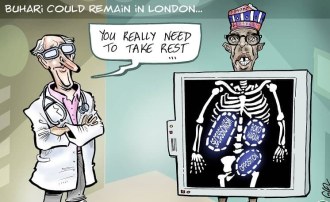The escalating incidence of petrol smuggling across Nigeria’s borders is put at a whopping 42 million liters per day, raising Nigeria’s estimated daily consumption of 60 million liters to 102 million. This has forced the country to spend between N140 billion and N150 billion on subsidies, which the Nigerian National Petroleum Corporation (NNPC) lamented has made it unable to contribute to the Federation Account.
Experts blamed this partly on the failure of regulatory agencies and security operatives.
Numerous actions and inactions by regulators in the financial sector, telecom industry, aviation, and others, have led to, or encouraged, unfair practices, higher prices for consumers, deaths, or damages, among others.
Many Nigerians have had their funds misappropriated, while others are at the mercy of loan sharks because regulatory agencies often fail to use their powers to sanitize the system and protect the consumers.
The Centre for Analysis of Risk and Regulation categorized these failings failure of informed analysis of a situation; inappropriate supervision; jurisdictional overlap among different bodies; political failure, and inadequate resources for a regulator to insufficiently address a problem.
Customers groan over arbitrary charges for electricity, metering
Electricity consumers have continually decried arbitrary charges, the lack of meters for their buildings, and other poor services offered to them by electricity distribution companies (DisCos).
11 DisCos interface with over 10 million registered electricity consumers with the Nigerian Electricity Regulatory Commission (NERC), saddled with the responsibility of regulating the sector.

